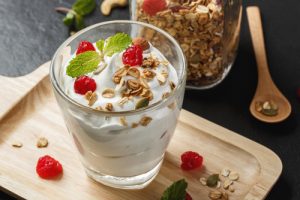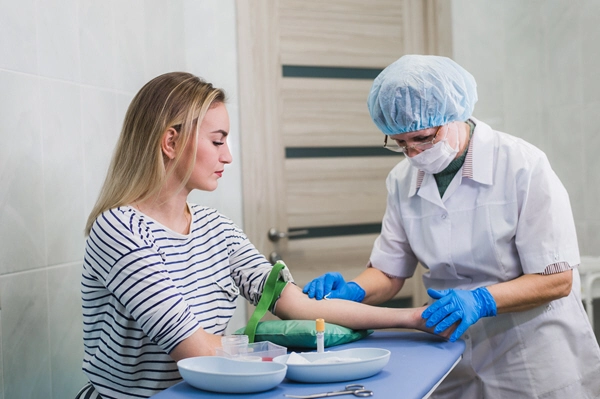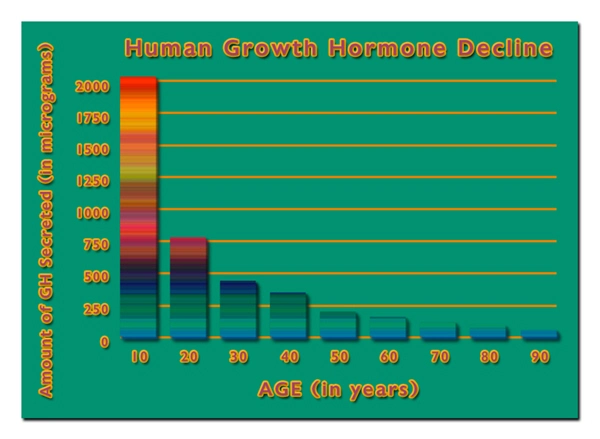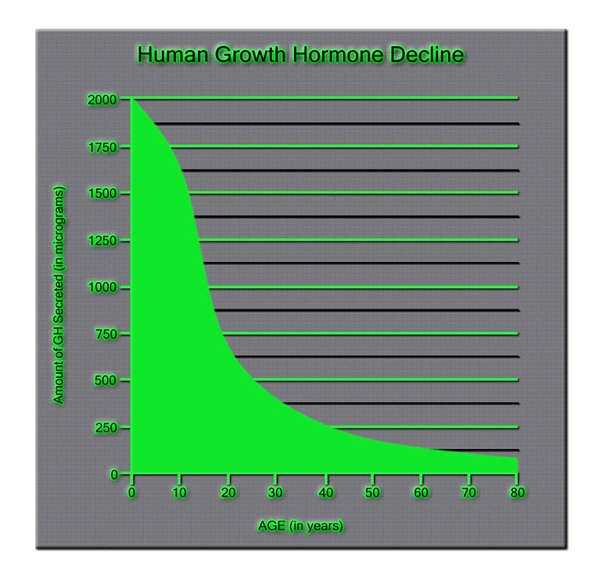Video Link: https://vimeo.com/255127820
Video Download: How To Naturally Boost Hgh Levels
Video Stream: How To Naturally Boost Hgh Levels

There are thousands, if not millions, of people in America interested in Human Growth Hormone (HGH). The thing is, there is only a specific subset of the population that qualifies for bio-identical HGH therapy. The vast majority of patients under age 30 don't qualify for Human Growth Hormone injections, but patients of all ages can benefit from HGH Optimization. Dependent upon your lifestyle choices and other factors, you can experience symptoms associated with HGH Deficiency even though you haven't quite reached a state where a Human Growth Hormone prescription is a viable option.
In the case of these patients, there are methods by which it is possible to boost HGH levels without injections using exercise and diet. If you are interested in safeguarding your Growth Hormone production and improving your health and quality of life, we encourage you to consider making the following changes in your lifestyle...
Change Your Diet to Boost Growth Hormone Production
 One of the biggest lifestyle factors which contribute to symptoms of HGH Deficiency is diet. Obesity has reached epidemic levels in America today, and we have a tendency to collectively make very poor decisions regarding the American diet. Losing weight is one of the best ways to restore a more natural Human Growth Hormone balance, and the Paleolithic Diet is one way to achieve that goal of weight loss and natural Hormone Optimization by more closely imitating the eating habits of our ancestors. For example, studies have shown that the Paleolithic diet is highly effective at weight loss, and it can do wonders for your Growth Hormone levels.
One of the biggest lifestyle factors which contribute to symptoms of HGH Deficiency is diet. Obesity has reached epidemic levels in America today, and we have a tendency to collectively make very poor decisions regarding the American diet. Losing weight is one of the best ways to restore a more natural Human Growth Hormone balance, and the Paleolithic Diet is one way to achieve that goal of weight loss and natural Hormone Optimization by more closely imitating the eating habits of our ancestors. For example, studies have shown that the Paleolithic diet is highly effective at weight loss, and it can do wonders for your Growth Hormone levels.
There are two major issues with the way we eat in the United States that suppress HGH production -- we eat too much food in a single meal and we eat way too many carbs. Both of these factors lead directly to spikes in insulin production which in turn suppresses the secretion of Human Growth Hormone. These bad habits also contribute to insulin resistance and can lead to Type-2 Diabetes.
Improving our diet by reducing simple carbohydrate intake and increasing our intake of healthy fats and lean protein improves our hormone profile, increases energy and contributes to weight loss. By switching to complex carbs and reducing consumption, patients can boost pituitary health and delay Growth Hormone therapy.
Eating small meals throughout the day can also improve Hormone Balance. The body undergoes more physiological strain when you eat too much all at once, and by changing your meal habits to eating five to six small meals each day you increase your body's propensity to burn calories rather than store them as fat.
Exercise Regularly to Boost HGH Levels
Sedentary lifestyle is another major contributor to early-onset HGH Deficiency. Men and women that don't exercise enough make it harder for their bodies to produce sufficient Human Growth Hormone. Any form of physical activity helps, but anaerobic exercises like weight lifting, resistance training and especially High-Intensity Interval Training (HIIT) provide the most bang for your workout buck.
These sorts of exercises also stimulate the body to build muscle while simultaneously burning fat. This leads to a slimmer and healthier figure and increases the body's capacity to produce Human Growth Hormone. Body fat has a strong effect on Hormone Balance, because the more fat that your body has, especially around the midsection, the more cortisol and other hormones are produced which actually suppress HGH levels. Cardiovascular exercise is still very important, but in order to keep HGH production high and stimulate proper metabolism, it's important to limit high-endurance cardiovascular exercise to around half an hour per day, and to focus on anaerobic exercise.
Choose the Right Pre-Workout Snack to Increase the Efficiency of HGH Production
There are two times when Human Growth Hormone production is at its highest: during deep sleep and after significant physical exertion. When you exercise, this encourages your body to produce more HGH naturally, in order to repair and strengthen the muscles after your workout. Because of this, eating foods with high levels of carbohydrates and sugars after you engage in physical activity can negatively impact your Human Growth Hormone levels during this important time, because it encourages the secretion of insulin and reduces HGH release.
 Rather than carbs, you should be focusing on protein consumption before and after you exercise. Protein gives your body the raw material that it needs to improve the results of your workout and enhance your HGH production. For all but the most vigorous athletes, we encourage you to avoid carbohydrates in the hour before your workout and stick to water for the half-hour beyond your exercise session. After thirty minutes, a protein shake is a smart and healthy option to maximize HGH response and the end-result of your workout.
Rather than carbs, you should be focusing on protein consumption before and after you exercise. Protein gives your body the raw material that it needs to improve the results of your workout and enhance your HGH production. For all but the most vigorous athletes, we encourage you to avoid carbohydrates in the hour before your workout and stick to water for the half-hour beyond your exercise session. After thirty minutes, a protein shake is a smart and healthy option to maximize HGH response and the end-result of your workout.
A Diet High in Lean Protein Keeps HGH Levels Healthy
Lean protein is a vital factor in the ideal diet. Lean proteins are loaded with amino acids which bolster your health and contribute to Hormone Balance. There are many amino acids which help you produce HGH and other necessary hormones more effectively, including arginine, l-lysine, glutamine and l-glycine. Athletes and other workout enthusiasts are encouraged by their trainers to turn to foods and supplements which contain these amino acids in order to fine-tune their results.
By providing your body the necessary building blocks to both stimulate and make use of HGH  and other healthy hormones, you improve your health and vitality. A diet high in protein is also associated with the normal secretion of eicosanoids. Eicosanoids are also referred to as local hormones. These are micro-hormones that work together in a specific part of the body in order to encourage the secretion of major hormones which have more prominent and global effects like Human Growth Hormone. A good diet with an appropriate portion of lean protein increases the ability of the body to produce the right eicosanoids at the right time.
and other healthy hormones, you improve your health and vitality. A diet high in protein is also associated with the normal secretion of eicosanoids. Eicosanoids are also referred to as local hormones. These are micro-hormones that work together in a specific part of the body in order to encourage the secretion of major hormones which have more prominent and global effects like Human Growth Hormone. A good diet with an appropriate portion of lean protein increases the ability of the body to produce the right eicosanoids at the right time.
Avoid Food before Bed to Protect Nighttime HGH Production
There is no time that your pituitary releases more HGH than during sleep. This is when your body goes into full recuperation, healing and strengthening both body and mind after a long day. If you have a habit of eating snacks before you head to bed, this can suppress Human Growth Hormone secretion during this vital period, reducing the healing impact of your nightly rest.
 A second reason why eating before you go to sleep is bad is that your body has a propensity to store calories consumed during this period as fat. Eating during the day in order to fuel your activity encourages the direct utilization of the calories that you consume, improving Body Mass Index (BMI), encouraging a more healthy physique and contributing to enhanced energy levels.
A second reason why eating before you go to sleep is bad is that your body has a propensity to store calories consumed during this period as fat. Eating during the day in order to fuel your activity encourages the direct utilization of the calories that you consume, improving Body Mass Index (BMI), encouraging a more healthy physique and contributing to enhanced energy levels.
In order to maximize HGH production at night and minimize fat storage, it's best to eat dinner a couple of hours before you go to bed. Ideally, your stomach should be close to empty, but you shouldn't feel hungry. If you do get hungry before bedtime, don't give in to carb-cravings, choose a healthy snack with lean-protein to sate your hunger.
Sleep Better to Increase HGH Secretion
Sleep is so important to normal hormone production, and poor sleeping habits can negate many of the best efforts that you make to keep your HGH levels healthy. Meeting your body's sleeping needs, which range between seven and nine hours of deep rest dependent upon the  individual, maximizes both HGH secretion and the healing power of your rest. If you don't get enough sleep or if you sleep poorly and restlessly, this severely impacts Growth Hormone release.
individual, maximizes both HGH secretion and the healing power of your rest. If you don't get enough sleep or if you sleep poorly and restlessly, this severely impacts Growth Hormone release.
The reason why type of rest is so important is because HGH is secreted by the pituitary gland only during the deepest stages of sleep, which occur around hours two and three of your night. The body spends the rest of the night utilizing Human Growth Hormone in order to stimulate healing and physiological restoration. There are a few steps that you can take to increase the restfulness of your sleep. Set a regular time to go to sleep. Avoid caffeine six to eight hours before bed. Purchase a sleep mask or light-proof your bedroom. By taking proactive steps to sleep well, you can live better and healthier.




List of USA state clinics - click a flag below for blood testing clinics.
Word Count: 1384



















































